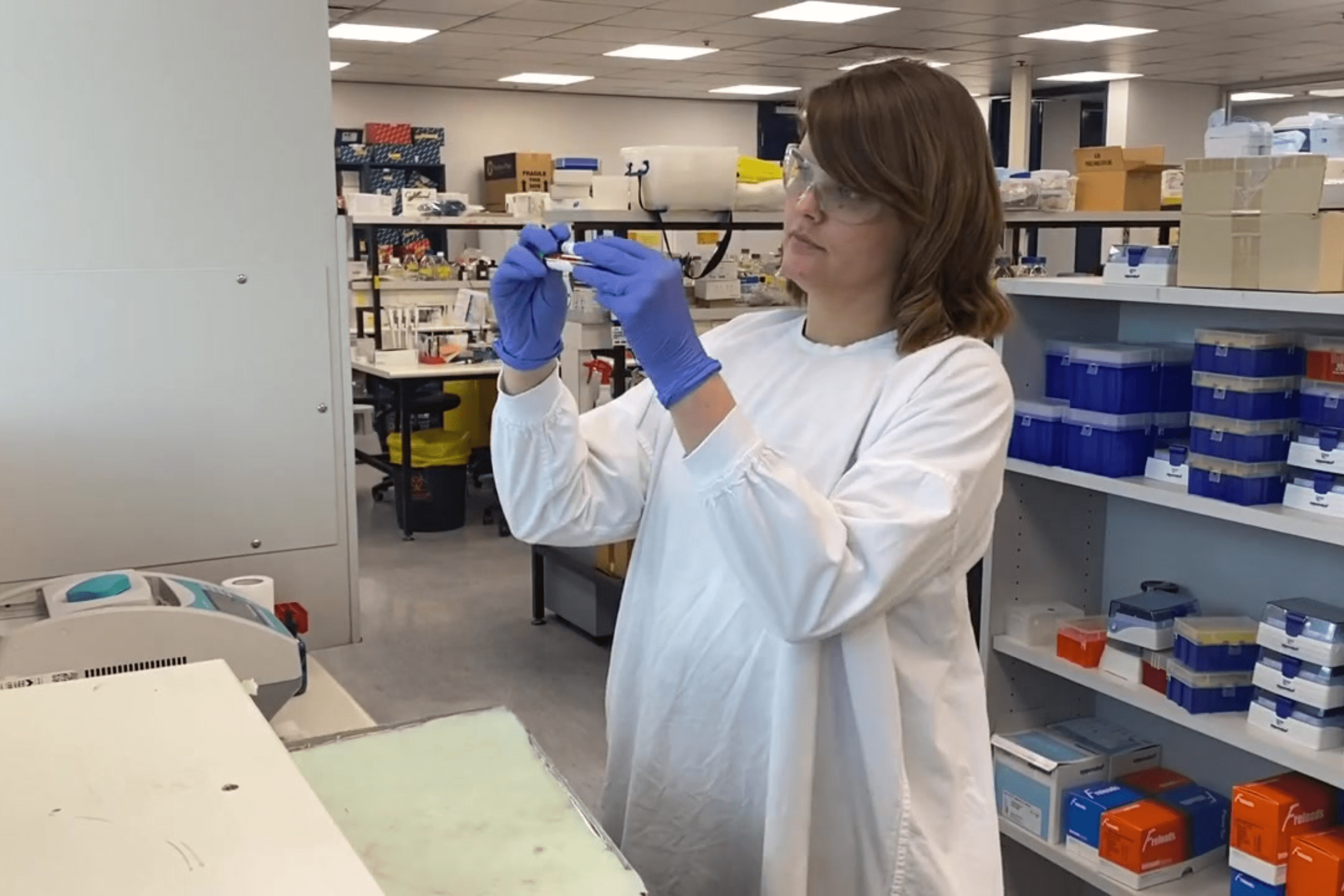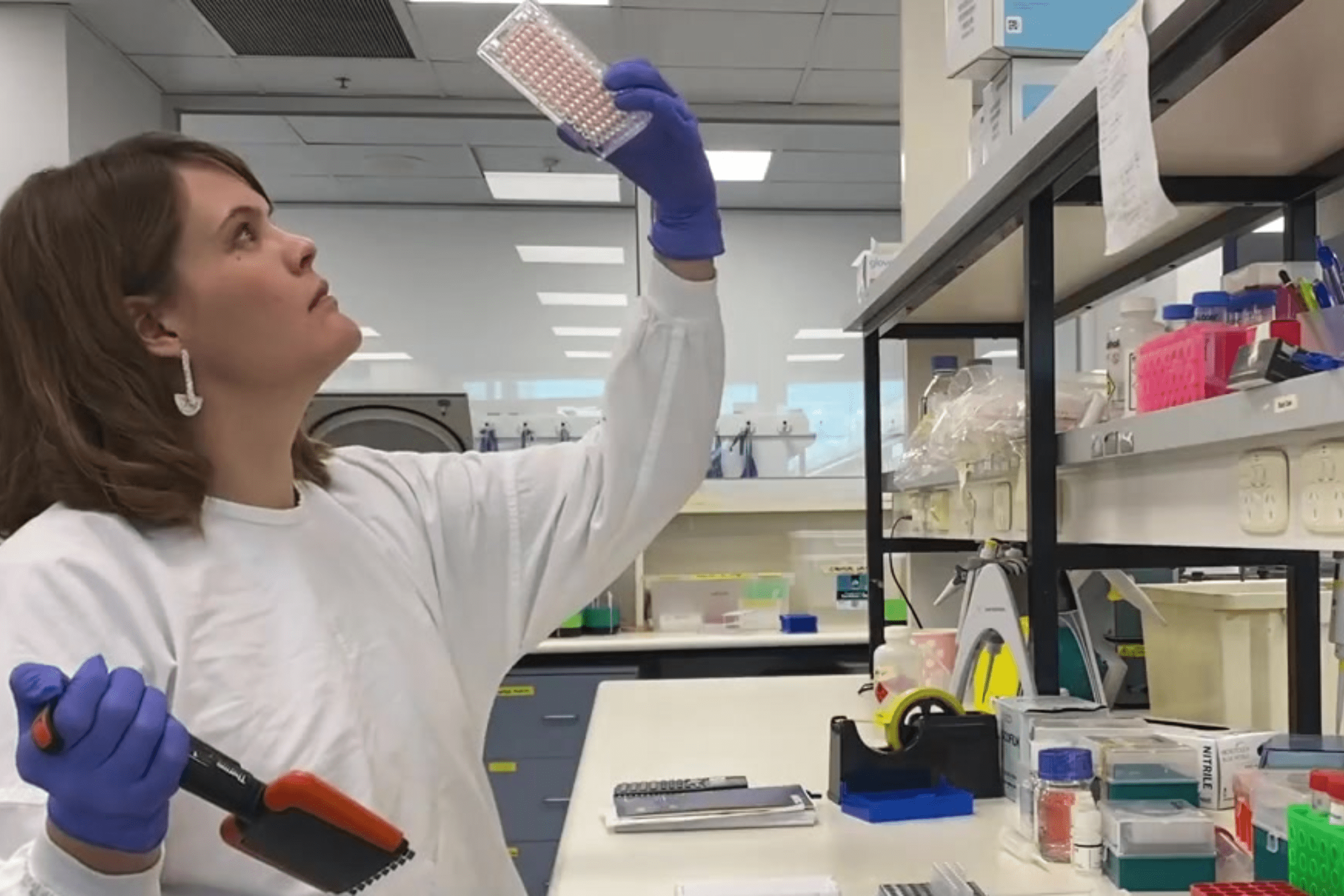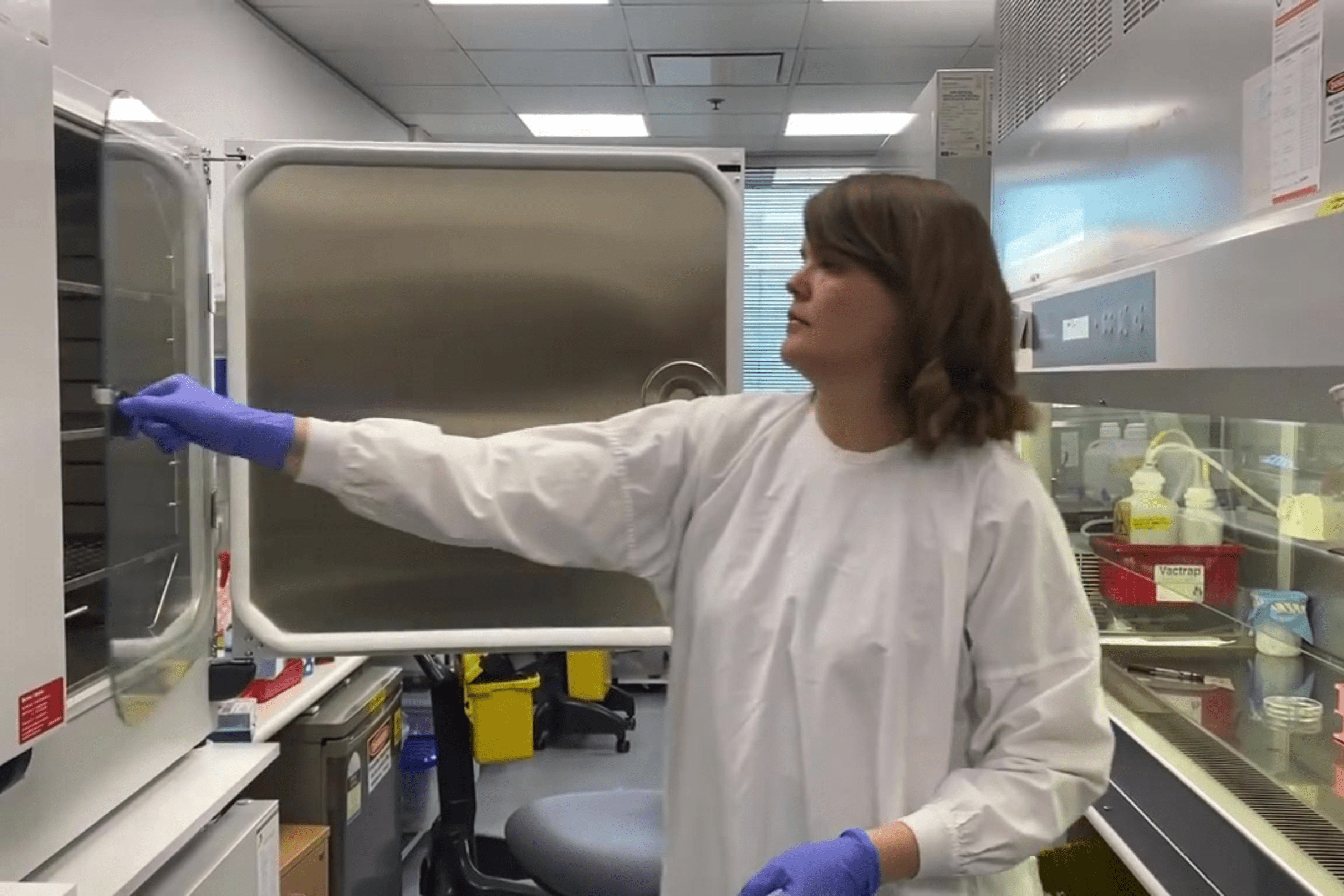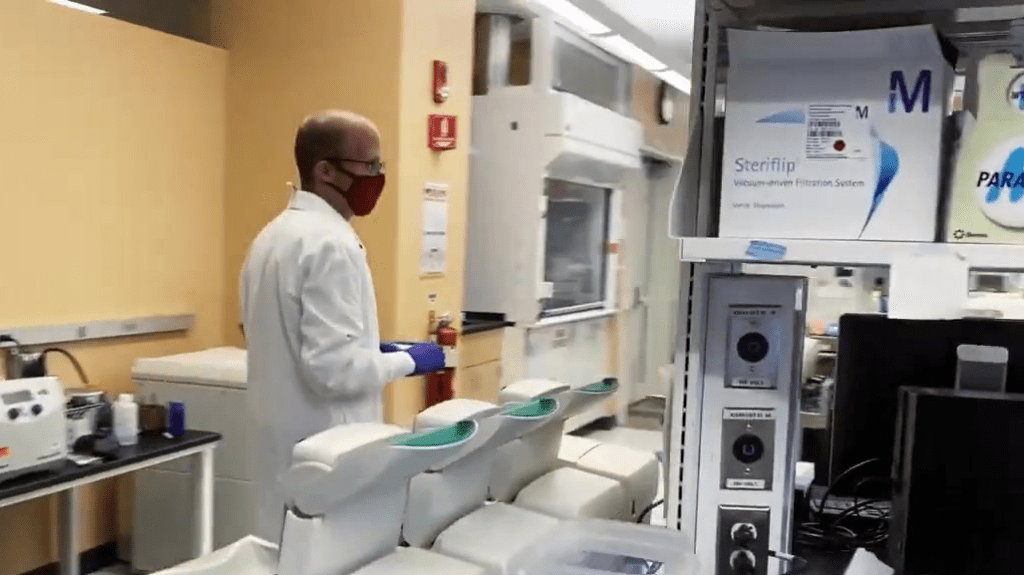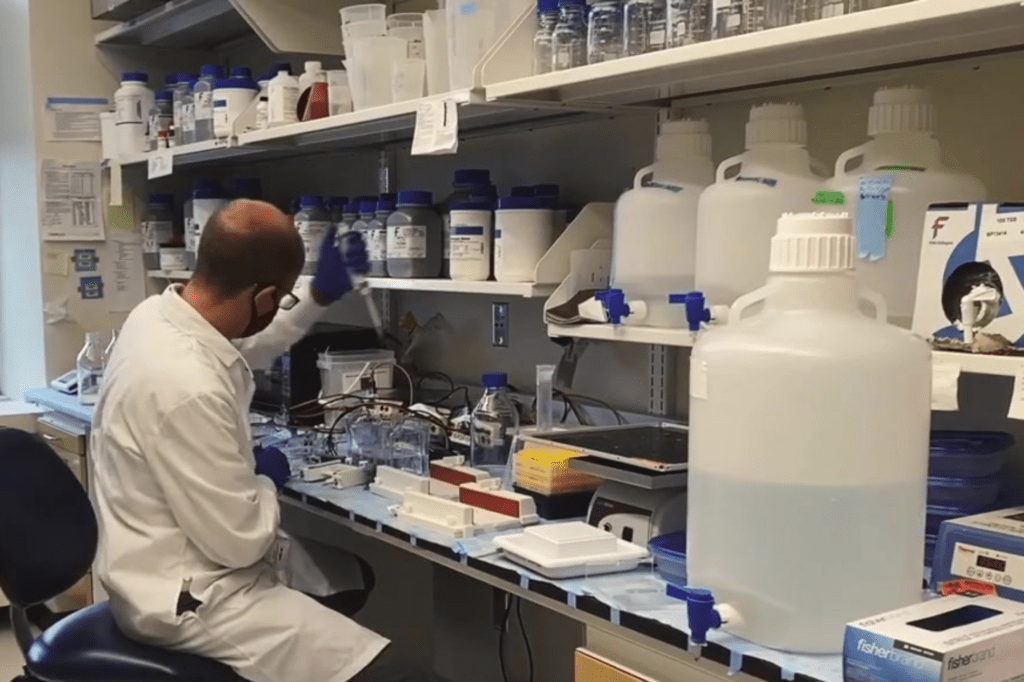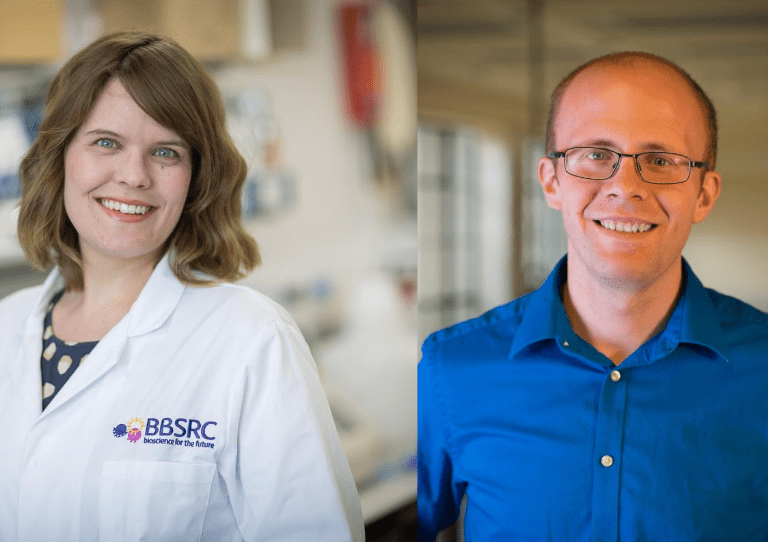2020 Michelson Prize Winners Dr. Danika Hill and Dr. Michael Birnbaum say the awards came at transitional points in their careers and enabled them to expand their research scopes and launch new collaborations.
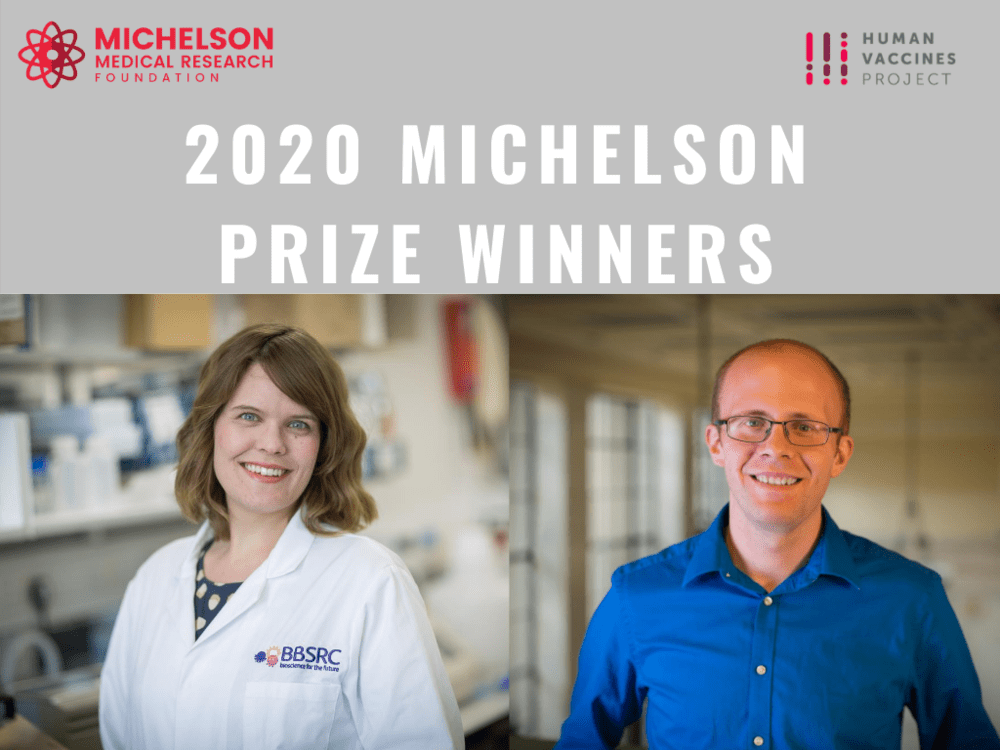
By Justin Chapman
The Michelson Prizes: Next Generation grants, awarded by the Michelson Medical Research Foundation and the Human Immunome Project, give $150,000 annually to investigators 35 or younger who are advancing the study of human immunology, vaccine discovery, and immunotherapy.
Previous winners of the prize also said the funds and prestige from receiving the prize have been instrumental in advancing their groundbreaking research at the dawn of their careers.
Now Michelson Philanthropies, the Michelson Medical Research Foundation, and the Human Immunome Project are gearing up to announce the new winners of the Michelson Prizes for 2021 on January 25, 2022.
Read about the 2020 winners below, Dr. Danika Hill and Dr. Michael Birnbaum, who share their discoveries and their career trajectories and also offer advice to investigators thinking about applying. The prize allowed them to pursue projects they were passionate about, helped grow their teams, and gave them needed independence.
Read about the 2018 winners here and 2019 winners here.
Dr. Danika Hill
Dr. Hill received the Michelson Prize for Human Immunology and Vaccine Research in 2020 for: “Exploiting T Follicular Helper Cells as an Innovative Tool to Discover Targets for Long-Lived Humoral Immunity.”
Dr. Hill’s research is focused on understanding the cellular and molecular mechanisms that underpin robust CD4+ T helper cell responses to vaccination and infection in humans. She’s particularly interested in targeting T follicular helper cells to improve vaccine responses, measuring T-cell receptor repertoire alterations after vaccination, and developing novel methods to identify antigen-specific CD4+ T-cells.
“The next steps will be to take a deep dive into understanding an area of vaccine responses that’s really poorly understood,” Dr. Hill said. “My goal is to use these new technologies to study a critically important cell type for vaccine responses, T follicular helper cells, in really fine detail in a disease setting where it’s never been done before, which is Group A streptococcus, and to use the knowledge that we get from these cells to find new vaccine targets.”
“Not only am I doing the work that the Michelson Prize has funded, but I’ve been able to expand the scope and start new collaborations.”
—Dr. Danika Hill
Dr. Hill said she received the Michelson Prize at a transitional point in her career and gave her CV that much more credibility.
“It was a real stamp of approval around my abilities and ideas, and it enabled me to carve out an independent research niche when I joined Monash University,” she said, adding that she has since become group leader within her department that the Michelson Prize helped to support. “Not only am I doing the work that the Michelson Prize has funded, but I’ve been able to expand the scope and start new collaborations. It’s a high-profile prize and an international body that said, ‘She’s got good ideas.’ It really helped open doors.”
Dr. Hill said that early-career researchers who are considering applying for the Michelson Prize should “take a step back from the work that you’re doing now and what you enjoy to do and ask yourself, ‘Can I make this bigger? Can I think bigger picture? Can I step outside of the box?’ That’s really what the Michelson Prize is about. It’s about pushing the boundaries of what we’re able to do in human immunology.”
The 2022 application opens April 1.
Learn more about Dr. Hill’s project here and her work here.
Dr. Michael Birnbaum
Dr. Birnbaum received the Michelson Prize for Human Immunology and Vaccine Research in 2020 for: “Repertoire-Scale Determination of T Cell Recognition and Cross-Reactivity to HIV via pMHC Lentiviral Display.”
Dr. Birnbaum’s research focuses on understanding and manipulating adaptive immune responses in the context of cancer and infection by using a variety of strategies and techniques including protein biochemistry, protein engineering, sequencing, and bioinformatics. Applying novel approaches, he systematically examines the antigen recognition repertoire of any given T or NK cell receptor and uses this information to engineer new methods to more specifically mount a potent immune response.
“My focus has been trying to better understand what the immune system recognizes during the course of infection or response to a tumor, and how we can potentially field better tools in order to monitor and predict it, to hopefully come up with better therapeutic interventions,” Dr. Birnbaum said.
He said he has been working to build a new tool in order to better be able to look at the repertoire of the immune system at scale.
“During the course of any response, you have many T cells, or many antibody-secreting B cells, all potentially involved in recognizing the infectious disease, for example,” he explained. “And it’s pretty difficult to decouple exactly what’s being recognized by what cells, and we’ve been developing a new tool in the lab in order to try to measure this better, by repurposing viral infection itself. We proposed to extend this into infectious diseases, particularly HIV, in the application that we submitted for the Michelson Prize.”
“The Michelson Prize is such a great opportunity to focus on something that’s exciting to you, to try something that isn’t necessarily incremental or safe. And those opportunities are fairly rare.”
—Dr. Michael Birnbaum
Dr. Birnbaum said winning the Michelson Prize helped further his research through the combination of the funds and the flexibility in the funds. One thing he realized in building this tool was that it is potentially equally applicable to studying antibody responses as it is to studying T cell responses, so having the extra flexibility of the funds from the Michelson Prize allowed him to explore that as well. It would have been harder to justify exploring those other possibilities if they were relying on funding from traditional means such as from the National Institutes of Health (NIH).
“Now that we have the tool belt, we’re looking for all sorts of different opportunities to apply it,” he said. “I just had a call earlier this morning about potentially applying it to study autoimmune diseases. So we’re really excited to actually use the technologies that we’ve built out.”
To future early-career researchers who are thinking about applying for the Michelson Prize, Dr. Birnbaum explained that it is “such a great opportunity to focus on something that’s exciting to you. That show of support, those extra resources, that extra flexibility, however you might want to put it, gives you an opportunity to try something that isn’t necessarily incremental or safe. And those opportunities are fairly rare. So I’d encourage people to certainly go for it.”
The 2022 application opens April 1.
Learn more about Dr. Birnbaum’s project here and his work here.
Watch the 2020 Michelson Prizes award ceremony below:
Stay tuned for an announcement about the 2021 Michelson Prizes award winners on January 25! Learn more about the Michelson Prizes here.

